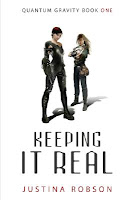 Norman Sprinrad’s latest On Books column for the April/May edition of Asimov’s, “The Multiverse“, is a direct response to a piece by Bruno Maddox appearing in Discovery Magazine, “Blinded by Science: Fictional Reality,” in which Maddox hauls out the tired old argument that in helping to build the present, science fiction is now obsolete. The article actually appeared back in July, 2007, and Norman’s response was composed then (and kindly forwarded to me at the time, which is how it ends up quoted in the forward to Sideways In Crime),
Norman Sprinrad’s latest On Books column for the April/May edition of Asimov’s, “The Multiverse“, is a direct response to a piece by Bruno Maddox appearing in Discovery Magazine, “Blinded by Science: Fictional Reality,” in which Maddox hauls out the tired old argument that in helping to build the present, science fiction is now obsolete. The article actually appeared back in July, 2007, and Norman’s response was composed then (and kindly forwarded to me at the time, which is how it ends up quoted in the forward to Sideways In Crime), but Asimov’s has taken their time getting around to publishing it.
but Asimov’s has taken their time getting around to publishing it.
In the meantime, the SF is Dead nonsense has cropped up again, in io9.com’s “5 Reasons to Stop Reading Science Fiction.” To be fair, io9 isn’t so much making this claim, as aggregating five other sources who complain about the problems of writing SF in the SFnal world we inhabit now, the mainstream colonization of SF tropes, the intrusion of fantasy, the graying of fandom, and the disappearance of mass-market distribution.
But to them, and to Maddox, Spinrad offers this brilliant, elegant, and ultimate rebuttal:
Picture the sincere writer of serious science fiction—someone really trying to do the job—as standing in the bow of a boat in a moment we might call the present. The boat is human history and all scientific knowledge available in that moment, and the waters that the boat is sailing through is the ocean of time. The science fiction writer is riding the vessel of all that knowledge, and his or her mission is to peer ahead from that vantage into the fog-bank of the future ahead of the boat utilizing all the knowledge upon which he or she stands, “stands on the shoulders of giants,” as this sort of thing is often put.
Thus, while the accumulation of scientific and other forms of knowledge as well as the profusion of technological innovation may be accelerating as the boat sails forward through the sea of time, no matter how fast it goes, no matter how much cargo is accumulating in the hold, the science fiction writer is always standing in the bow of the boat looking forward.
That is why it is impossible for science, technology, evolution, or history to render science fiction obsolete. There are all too many ways that a civilization can end up destroying science fiction as a commercially viable literature or even as a visionary mode of thought, but the necessary visionary function performed by science fiction in a progressively evolving civilization can never be rendered obsolete. If nothing is performing that visionary function, it is the civilization in question that in the end renders itself obsolete, as has happened many times in world history.
That, in an of itself, is enough to make me kiss Norman’s feet. But he goes on from there, in a response to Jim Gunn’s assertion that Neuromancer was the last work of science fiction to introduce a truly “big idea.”
was the last work of science fiction to introduce a truly “big idea.”
As counterpoint, Norman offers too big ideas that have emerged recently, the “Singularity” and what may “prove also to be its dialectic antithesis” – the Multiverse. He then makes a case that the notion of the Multiverse has moved from a literary construct to the frontline thinking in quantum phyisics, and in so doing, should be moving to the forefront of science fictional concern as well.
…quantum physics is now telling us is that the Multiverse is the ultimate reality, and not merely a literary construct. That a multiplicity of separate universes or realities must exist because of quantum indeterminacy.
…It is science which has fed science fiction an enormous morsel to attempt to chew on this time, and not the other way around. The Multiverse, it would appear, is not merely subjective perception, but the way things really are, the way our selves really are, our alternate selves, the truth of all existence on a quantum level.
To deal with this fictionally with anything like rigor, let alone convey it to the reader on an experiential and emotional level, is one daunting and even frightening task. But it is also a rich vein of thematic and speculative material only beginning to be mined on that level.
And then he goes on to look at three books that are mining it on just the level he describes.
 One of them is Justina Robson’s Keeping It Real,
One of them is Justina Robson’s Keeping It Real, the first in her Quantum Gravity series, which Norman describes as, “Fantasy written as if it were science fiction. Like alternate-history fiction.” He ties her book into multiple worlds theory when he says:
the first in her Quantum Gravity series, which Norman describes as, “Fantasy written as if it were science fiction. Like alternate-history fiction.” He ties her book into multiple worlds theory when he says:
But whether Robson consciously intended to declare it or not when she titled the novel, keeping it real is just what Keeping It Real does, the “it” being that this Multiverse is literarily science fiction, not fantasy. Each of these alternate realities has its own more or less rigorous physical laws, call what’s going on magic or not.
Justina and I corresponded about this article recently, and she graciously grants permission for me to share her response here:
In case you wondered, the thing that he’s talking about actually always was the point of the QG series, and I thought at the beginning I’d get to lay it out much sooner, but I’ve got 3 books down and still no sign of Quantum Bob (“But, Professor, how do these shattered worlds fit together?” “As you know, Bob, the nature of reality is the infinity -1 range of the external and internal worlds…”)…
The reason for the fantastical nature of the few realities experienced in QG is down to the explosion of the internal into the external. The Quantum Bomb rendered, briefly, the distinction between internal (individual consciousness/mass consciousness) and external (physical, transphysical, temporal) irrelevant. In fact, that was more a revelation than an action as they probably always were interconnected to a much higher degree than contemporary views of reality (like the Dawkins’ view) would ever countenance.
Which takes her a lot closer to what Norman is talking about when he talks about the need to convey the Multiverse to the reader “on an experiential and emotional level,” something he says that Kathleen Goonan’s In War Times begins to do when it uses the metaphors of jazz to portray shifting realities in her novel of alternate 1940s worlds. Norman says:
begins to do when it uses the metaphors of jazz to portray shifting realities in her novel of alternate 1940s worlds. Norman says:
Kathleen Ann Goonan can’t overtly broach that concept in In War Times, since this is a period piece the maintenance of whose grounding in this wartime and early post-wartime past is absolutely essential for the novel to work. But she herself, writing in the present, does seem to comprehend it at least up to a point, and sidles up to it, using the progressive jazz of the period as an extended musical metaphor for the physics and metaphysics of the Multiverse.
Which brings us to Ian McDonald’s Brasyl, which Norman says is able to take that last step and which confirms Ian McDonald as:
…one of the most interesting and accomplished science fiction writers of this latter-day era. Indeed, maybe the most interesting and accomplished, and certainly the most culturally and musically sophisticated—the Frank Herbert, William Gibson, or arguably even Thomas Pynchon of the early twenty-first century, if only the early twenty-first century would allow such a writer to reach that kind of eminence.
 Norman asks if it is even possible to “use language to actually create the virtual experience of multiversal reality in the human mind,” and, in examining Brasyl, he concludes that:
Norman asks if it is even possible to “use language to actually create the virtual experience of multiversal reality in the human mind,” and, in examining Brasyl, he concludes that:
Ian McDonald actually does it. He succeeds in putting a human face on, putting a human consciousness within, the naked quantum Multiverse, the infinite multiplicity of universes branching out fractally from every moment of time, with the infinity of her alternate selves exfoliating within it, and delivering the experience to the reader.
The result, he says, is “A science fictional dialectic… for what other mode of literature can even begin to approach such material?” and also “the opening act of the science fiction of the twenty-first century.”
Thank you, Norman, for reminding us that far from being dead, science fiction may only just getting started. For what are the few decades behind us in the face of a literal infinite array of possibility.
 In the Best Novel category – Ian McDonald’s Brasyl
In the Best Novel category – Ian McDonald’s Brasyl(published by Gollancz in the UK)









